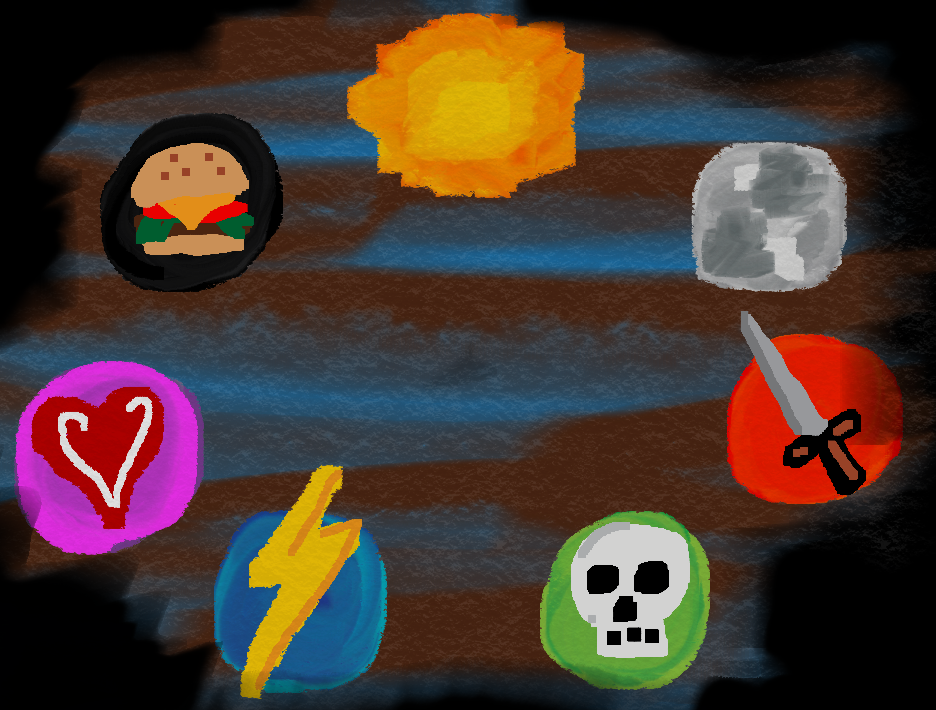Dear Language Nerd,
What do the names of the days mean? Ok, “Sunday” I think I can guess, but “Tuesday”? Is “Friday” related to French fries?
-Katon Lannis
***
Dear Katon,
Last year at this time, I talked about the meanings of the names of the months, so it seems apropos to start off 2014 by taking your question on the days of the week. Not sure what that leaves me for next year, but hey, I’ve got time to think about that.
We ended up with a seven-day week two different ways. The first, better-known way is via the Bible: six days of work and then a day for chillin. The Romans had a seven-day thing going on too, but they got there from a different starting point. See, they saw* a total of seven important celestial bodies in the night sky, and decided that the hours were ruled by each one in succession. Whichever one was ruling in the first hour, they named the day after. So, bingo, seven days.
Two of these days get straight to the point. The first, diēs sōlis, you’ve already figured out; it’s Sunday, the day of the sun. The other is Lunae dies, or Moon-day, or Monday. Cool, we can check those off.
On the other days, the ruling bodies were planets, and the Romans had named all their planets after gods. When these days wandered further north into Europe, the Germanic tribes kept the concept, but swapped the names out with similar deities from their own pantheon. These gods became more famous under slightly different spellings as the Norse gods. Thus, we ended up with:
Tuesday: from dies Martis, the day of Mars. Mars, the war god, was matched up with Tiw, one of the lesser-known Germanic deities. Just goes to show that you can get a whole day named after you even if you’re not an Avenger.
The Romance languages — French, Spanish, etc. — kept the Romance names, though they changed the spelling slightly over time. We borrowed a couple of these names back again later for festivals like Mardi Gras, aka Fat Tuesday.
Wednesday: in Latin, diēs Mercuriī, the day of Mercury, who was paired with Woden (Norse “Odin”). Until I started researching this article, I’d never heard of little ol messenger-boy troublemakin Mercury being compared to a power player like Woden, but apparently winged shoes deliver more clout than I thought.

So turns out the link between Mercury and Odin is that they were both known for ferrying souls over to the underworld. Hence Skully there.
Thursday: dies Iovis, the day of Jupiter. What with the lightning bolts and the sky-godliness, he was changed to Þunor, god of thunder,** who was so serious about being the god of thunder that his name was just the word “thunder.” And who of course we know as the guy who swings Mjölnir around until he’s just too thor to continue.
and
Friday: dies Veneris, the day of Venus, connected to Germanic Frig, not at all connected to delicious unhealthy foodstuffs or the style in which they are cooked in oil. Frig wasn’t as much of a love goddess as Venus was, but apparently she was close enough.
And last things last: Saturday started out as Sāturnī dies in Latin, for Saturn, the god of plenty. When this name came north, the proto-Germans figured that the name “Saturn” was cool enough to hang out with them without having to go through a Grease-strength makeover first. Because man, Saturday is perfect just the way it is.
A happy and nerdy New Year to all!
Yours,
The Language Nerd
*The Romans got their views on astronomy from yet-more-ancient ancients, but those guys are not super relevant for this article and thus gettin’ skipped.
**More on Þ and other “th” goofiness here.
Got a language question? Ask the Language Nerd! asktheleagueofnerds@gmail.com
Twitter @AskTheLeague / facebook.com/asktheleagueofnerds
This article is 100% pure unadulterated Oxford English Dictionary goodness. Hell yeah.